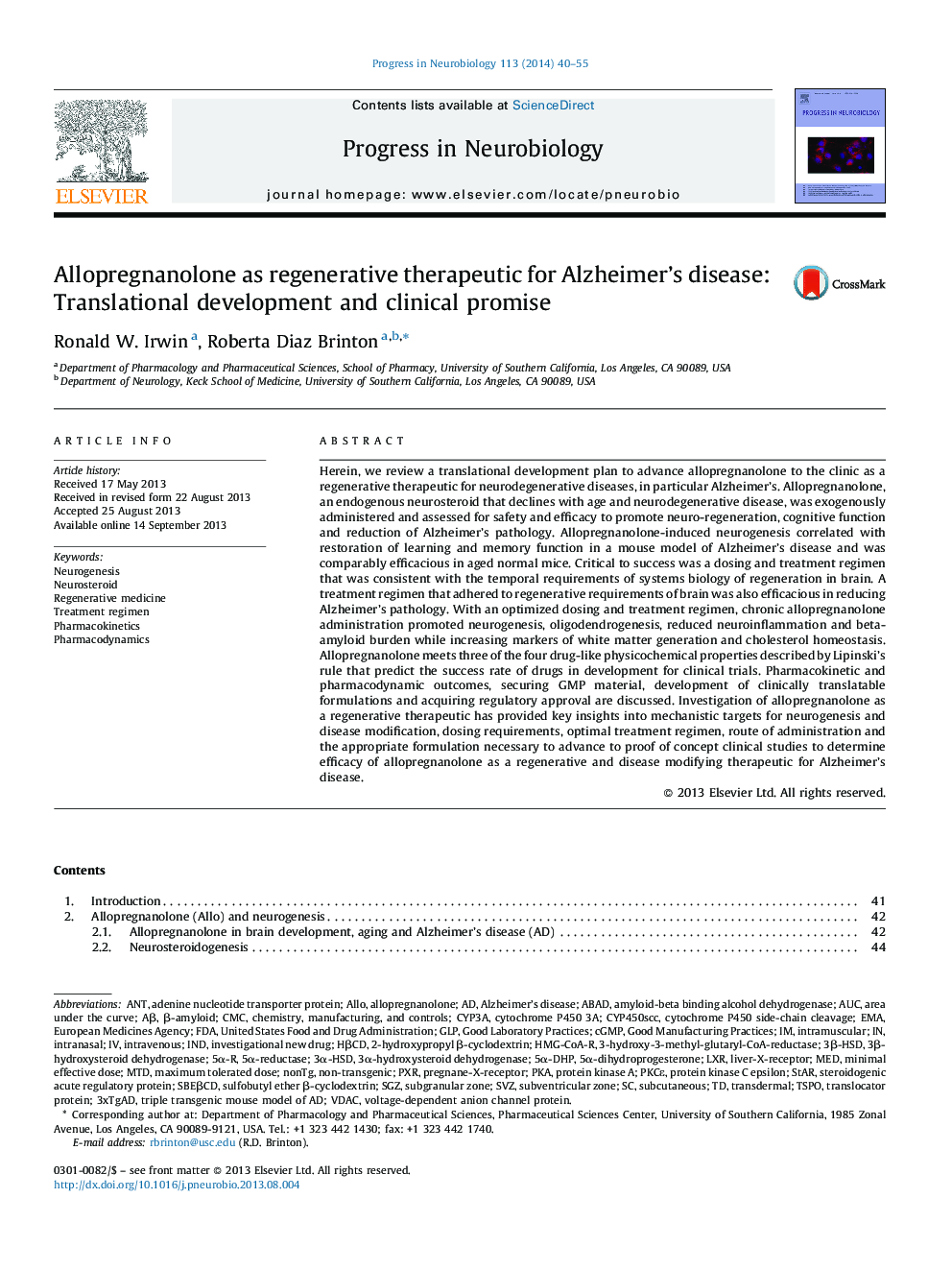| Article ID | Journal | Published Year | Pages | File Type |
|---|---|---|---|---|
| 4353354 | Progress in Neurobiology | 2014 | 16 Pages |
•Allopregnanolone is a regenerative therapeutic candidate that promotes neurogenesis and restoration of cognitive function.•Endogenous allopregnanolone is important for normal brain development and is reduced with aging and Alzheimer's.•Intermittent allopregnanolone reduces Alzheimer's pathology; increases cholesterol homeostasis, white matter generation.•Formulation and route of administration allow for fine-tuning of pharmacokinetics and safety profile.•Treatment regimen must synergize with systems biology of regeneration and prevention/reduction of Alzheimer's.
Herein, we review a translational development plan to advance allopregnanolone to the clinic as a regenerative therapeutic for neurodegenerative diseases, in particular Alzheimer's. Allopregnanolone, an endogenous neurosteroid that declines with age and neurodegenerative disease, was exogenously administered and assessed for safety and efficacy to promote neuro-regeneration, cognitive function and reduction of Alzheimer's pathology. Allopregnanolone-induced neurogenesis correlated with restoration of learning and memory function in a mouse model of Alzheimer's disease and was comparably efficacious in aged normal mice. Critical to success was a dosing and treatment regimen that was consistent with the temporal requirements of systems biology of regeneration in brain. A treatment regimen that adhered to regenerative requirements of brain was also efficacious in reducing Alzheimer's pathology. With an optimized dosing and treatment regimen, chronic allopregnanolone administration promoted neurogenesis, oligodendrogenesis, reduced neuroinflammation and beta-amyloid burden while increasing markers of white matter generation and cholesterol homeostasis. Allopregnanolone meets three of the four drug-like physicochemical properties described by Lipinski's rule that predict the success rate of drugs in development for clinical trials. Pharmacokinetic and pharmacodynamic outcomes, securing GMP material, development of clinically translatable formulations and acquiring regulatory approval are discussed. Investigation of allopregnanolone as a regenerative therapeutic has provided key insights into mechanistic targets for neurogenesis and disease modification, dosing requirements, optimal treatment regimen, route of administration and the appropriate formulation necessary to advance to proof of concept clinical studies to determine efficacy of allopregnanolone as a regenerative and disease modifying therapeutic for Alzheimer's disease.
